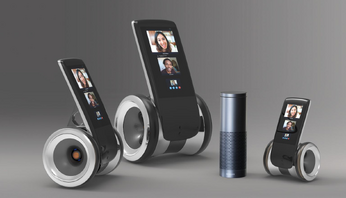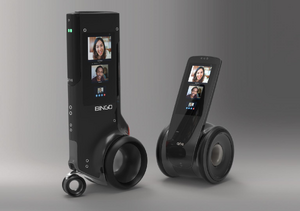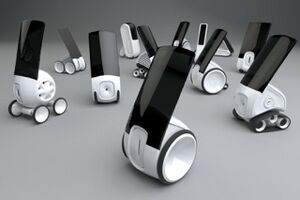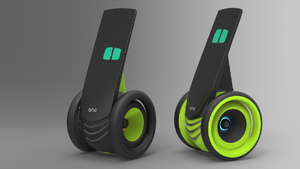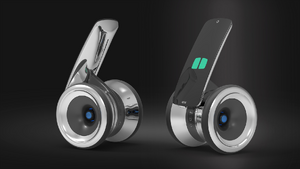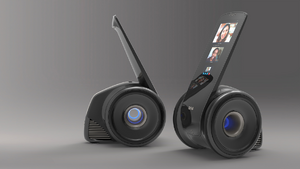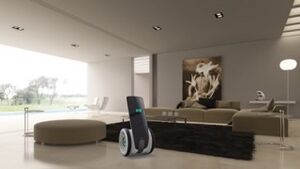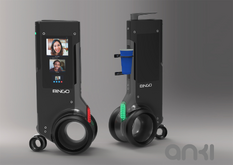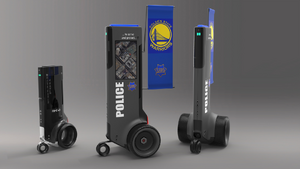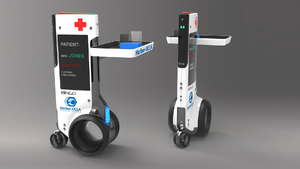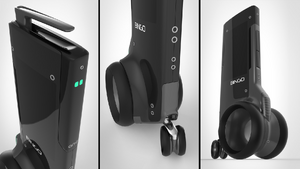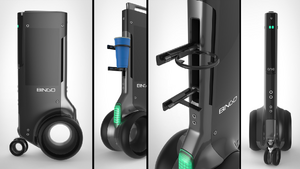Bingo: Difference between revisions
m fix link |
m Conchregate |
||
| Line 39: | Line 39: | ||
A larger office version would have three wheels but still imitate motion by tilting forward. This device would be the ideal office helper / mule. (Hans Belker)</blockquote> | A larger office version would have three wheels but still imitate motion by tilting forward. This device would be the ideal office helper / mule. (Hans Belker)</blockquote> | ||
[[File:Bingo echo.png|left| | [[File:Bingo echo.png|left|346x346px|Differently sized Skype Bingos congregating around an Amazon Echo (1st Generation)|alt=Bingo sizes compared to an Amazon Echo|thumb]] | ||
[[File:Weirdmo.png|center|thumb|2 different types of Big Bingo]] | [[File:Weirdmo.png|center|thumb|2 different types of Big Bingo]] | ||
[[File:Many different concepts for Bingos body.jpg|left|thumb|Many different concepts for Bingos body]] | [[File:Many different concepts for Bingos body.jpg|left|thumb|Many different concepts for Bingos body]] | ||
Latest revision as of 09:09, 27 July 2025
Bingo and mini-Bingo were concepts for possible future robots. One concept was a large body that could be used in a building security role. On the other end was a smaller -- soda can sized -- bot that would suitable for running around the floors in homes.
THIS ENTIRE PAGE COMES FROM https://randym32.github.io/Anki.Vector.Documentation/index.html, THANKS RANDY
An exploration of the character design:
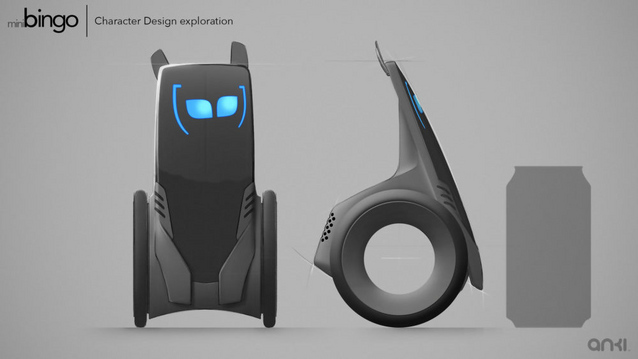
Taking inspiration in its spirit and shape from dogs and other animals:
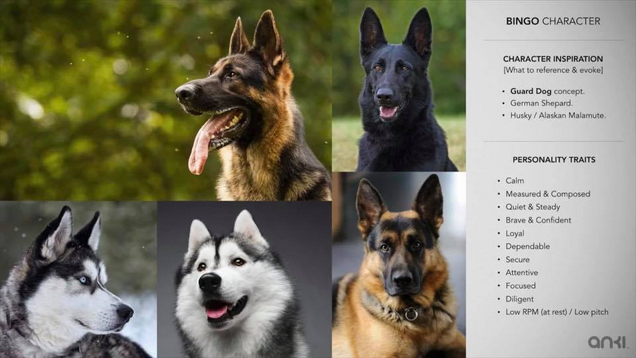
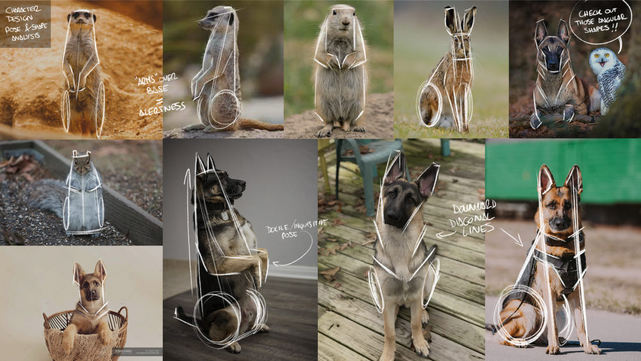
A mini Bingo on the desk (source)
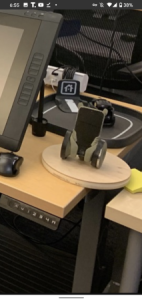
From Matthew Mallet:
"miniBINGO is a black iPhone 7 with polymer clay modeled over the top of a thin clear plastic lining. When miniBINGO is placed on a flat surface, it leans against a large piece of clay as a stand attached to what looks like an hourglass conveyer roller. The clay wraps around the front of the iPhone in a set of 3 diagonal partitions from top corner towards the bottom corner. Each of these pieces of clay have cuts giving it a sharper modern look. When he is plugged in on normal boot he displays the name of the device as miniBINGO." "Fun fact: miniBINGO was never meant to be a finished robot. It was a way to show character design from idea to working prototype."
Pictures of the Big Bingo prototype
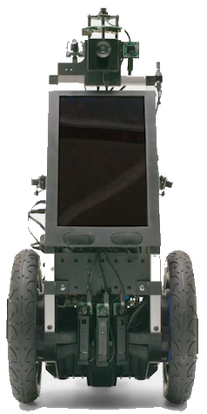
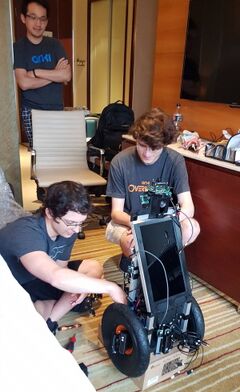
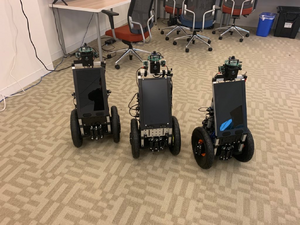
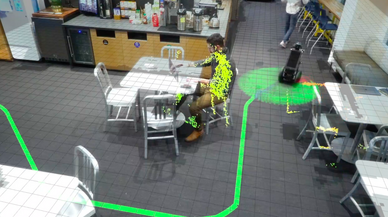
Some industrial design sketches
Below are some exploratory ideas. Note: these are not what the robot would have looked like; they were trying out ideas for people to respond to and help iteratively craft the look.
From Harald Belker's site:
The idea of having a self-navigating and self-balancing robot in the house was going to be the evolution to the current household smart speaker systems. In our mind it could only succeed if it moves around in a smooth and natural looking way.
A self-balancing robot would address these issues, but it also created a long list of mechanical issues that come with it.
A larger office version would have three wheels but still imitate motion by tilting forward. This device would be the ideal office helper / mule. (Hans Belker)
